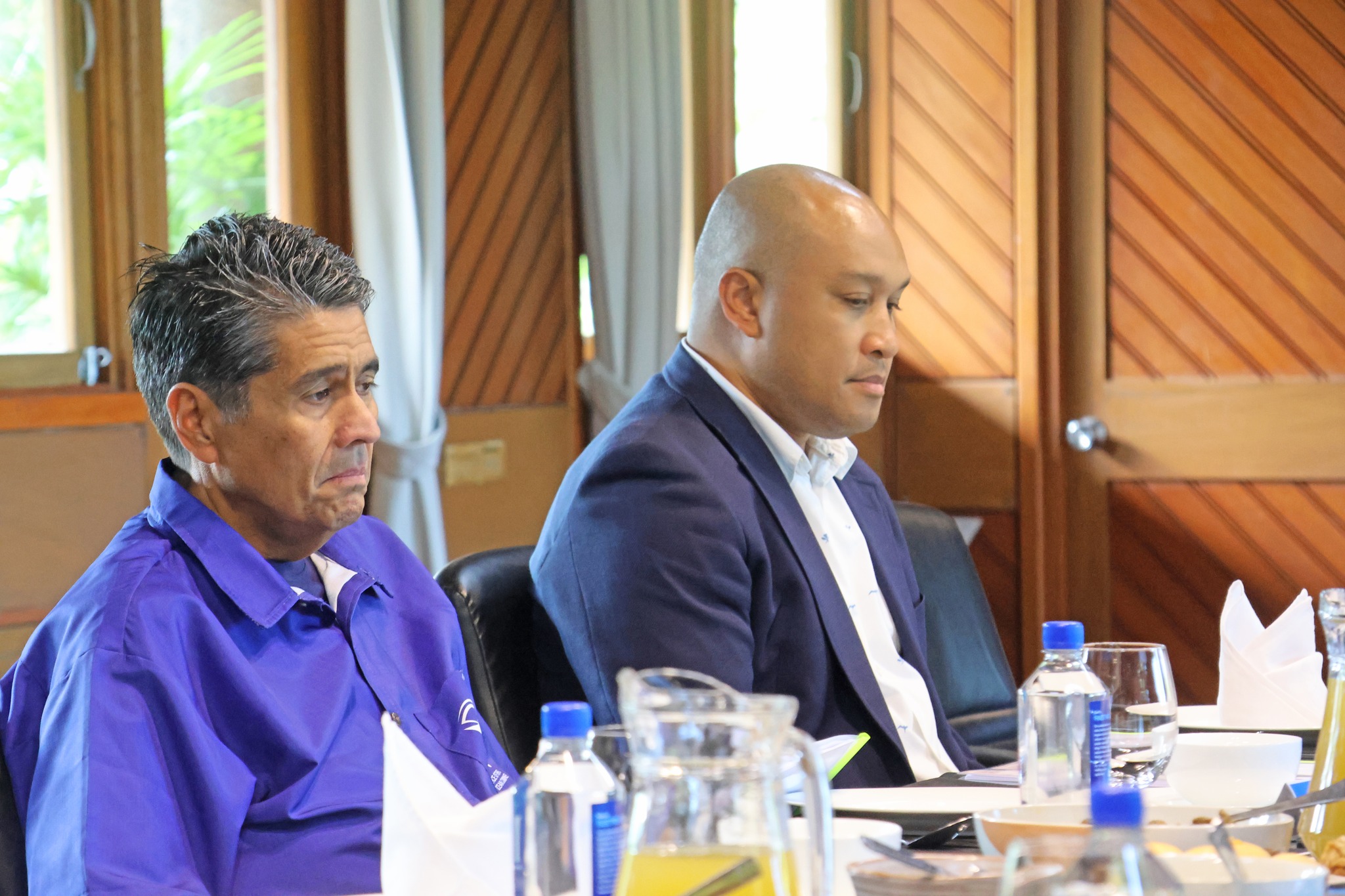Palau President Surangel S. Whipps Jr has called on Pacific leaders to stop deep-sea mining (DSM) until we fully understand its effects on the ocean.
Speaking at the Pacific Islands Forum Talanoa last week, Whipps stressed that mining should not move forward without solid scientific proof that it won’t cause serious harm.
“This is an ocean-wide planetary experiment, and the stakes are too high to get it wrong. The deep seabed is not a barren wasteland but a vital, living ecosystem that sustains planetary processes,” Whipps said. “Once destroyed, it may never recover.”
Whipps pointed out that scientists still don’t have enough information on how deep-sea mining could affect marine life and the planet. He cited a 2024 legal ruling that says countries must make sure marine activities do not cause major harm to biodiversity.
“Given the scale of what is at stake, we must act with extreme caution, ensuring independent science, transparency, and full oversight before making irreversible decisions that could alter our ocean ecosystems forever,” he said. “We have no idea what disturbing these vital ecosystems will do to our ocean and our planet in the long-term.”
Research shows that deep-sea life may not recover from mining damage in a human lifetime. Whipps challenged claims that mining’s impact would be small, saying all related scientific studies should be made public and verified by independent experts before any mining is allowed.
Whipps criticised the International Seabed Authority (ISA) for not yet creating strong rules to guide deep-sea mining. He insisted that no company should begin mining until strict environmental protections and fair profit-sharing systems are in place.
“Nothing is final until everything is agreed upon,” he said, emphasising that rushing into mining could put ocean ecosystems at risk.
He also rejected arguments that deep-sea mining is needed to reduce damage from land-based mining, calling this a misleading comparison. Instead, he warned that mining the ocean would add to, not replace, industrial destruction.
Palau supports a regional strategy to protect the ocean and calls for:
*A pause on deep-sea mining until scientists prove it won’t cause serious harm.
*Fair participation of Pacific Island nations in mining decisions and profit-sharing talks.
*Respect for traditional knowledge and cultural heritage when making mining rules.
*A legal review to make sure mining rules match global environmental agreements.
*Public access to all scientific studies before any deep-sea mining projects are approved.
*More independent research on deep-sea ecosystems and the long-term effects of mining.
Whipps urged Pacific nations to act wisely and not rush into mining without all the facts.
“This isn’t just about mining—it’s about protecting the last untouched part of our planet,” he said. “Let us not repeat past mistakes of short-term economic gain at the expense of long-term planetary loss.”
As discussions on deep-sea mining continue, Pacific leaders face a major decision. They must choose between moving forward cautiously with strong protections or risking damage to one of the world’s last untouched ecosystems.













